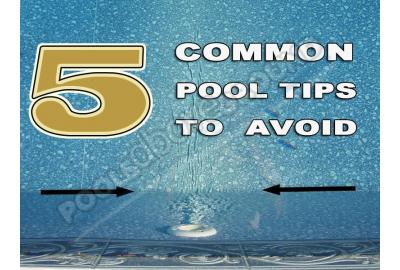February 26, 2021
505 view(s)
As you know, the internet has completely changed how people do things. Perhaps the most dramatic example of this is the rapid growth of the DIY (do-it-yourself) movement. After all, how many hundreds or thousands of dollars do we waste every year paying experts to do jobs that we could do ourselves? And while I'm certainly not recommending you rebuild your car's brake system from scratch, you should understand that there's probably a video out there showing you how.
But what happens when the advice these DIY experts offer is wrong? I mean, there's no one evaluating YouTube content to make sure users aren't giving bad advice. So, if you think about it, you're just as likely to come across bad information as good. And, boy, have we seen some bad information in our day.
In fact, we’ve constructed this article to highlight some of the worst pool “tips” we’ve come across on the internet. Whether they come to you from a YouTube "expert" or the guy at your local pool shop, you need to avoid following this advice at all costs.
5 Common Pool Tips to Avoid
Powered by Amasty
Magento 2 Blog Extension
Search the blog
Recent posts

How to Install a Base for Your Above Ground Pool
2521 view(s)

What Is Pool Cove And Do I Need It?
2667 view(s)

How To Save Money with a “Green” Pool
332 view(s)

First Time Pool Owner Tips
601 view(s)

5 Common Pool Tips to Avoid
505 view(s)


